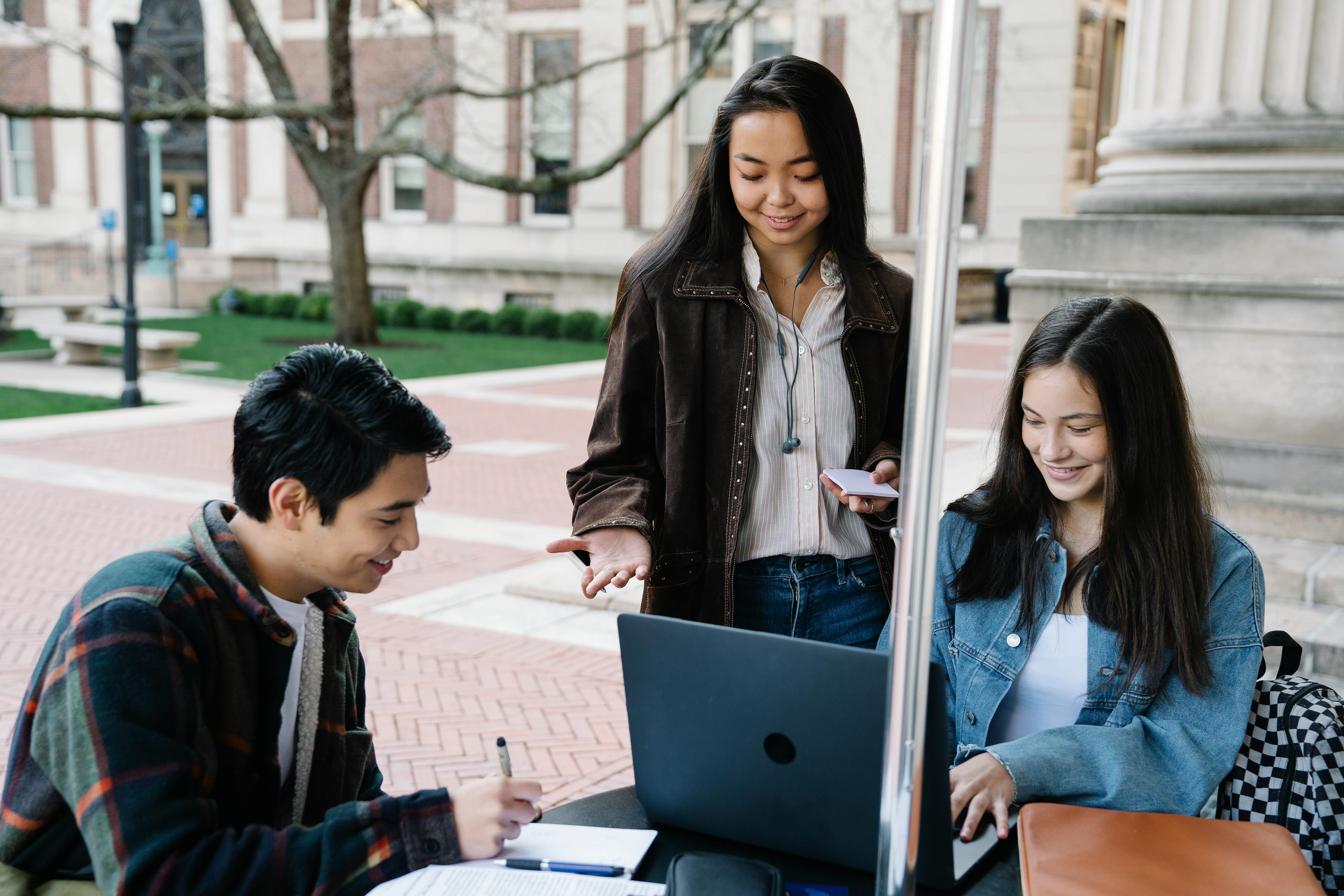
Can AI Really Make Study Notes?
Studying in 2025 feels different. Lectures are faster. Professors talk like they’re in a speed-run. Slides flood your screen before you’ve even finished typing the first sentence. And while education has evolved, note-taking has barely changed. Most students are still typing frantically or scribbling half-finished thoughts on paper hoping they’ll make sense later.
This is where one big question keeps showing up online: Can AI actually make real study notes? Not summaries, not generic fluff, but the kind of structured, detailed, accurate notes students actually use?
It’s a fair question. AI is everywhere now, but students don’t want marketing hype. They want clarity. They want accuracy. They want something that saves them time without ruining their grades.
So let’s break it down properly, from the academic perspective and the real student perspective. We’ll walk through what AI note-taking actually is, how it works, what benefits it realistically offers, and where an AI tool like Duetoday fits into all of this.
What Does It Mean for AI to Make Study Notes?
To understand whether AI can truly create notes, we need to define what study notes even are.
Good study notes are more than just transcription. They capture structure. They highlight key ideas. They explain concepts in your own words. They filter out noise. They help you revise faster and retain more.
AI-generated notes, at their best, attempt to do the same thing. They listen to audio or read your documents, and then reconstruct the content as:
• Clear concepts
• Organised sections
• Definitions
• Examples
• Explanations
But the key difference is speed. AI does this instantly. Instead of you typing for hours, the content appears in seconds.
So theoretically, yes — AI can make study notes. But the real question is: Will they actually be useful?
Let’s explore the “why” and the “how.”
Why Students Need AI to Step In
University life is overloaded. And not because students are lazy or distracted, but because everything is simply faster now. Professors teach fast. Courses are dense. Assessments stack on top of each other. And most students juggle part-time jobs, internships, societies, or full-time workloads.
Traditional note-taking breaks down for a few reasons:
Lectures move too quickly
Even strong students can’t type as fast as professors speak. Something always gets lost.Slides don’t match what professors say
Some lecturers go completely off-script. The most important exam content often comes from unscripted explanations.Handwritten notes get messy by week three
Everyone starts neat. Everyone ends up with chaos.Students forget most of what they hear
The forgetting curve is brutal. Without review, 70% disappears within a week.Reviewing notes takes more time than taking them
You rewrite, reorganise, highlight, and try to understand what you meant two weeks ago.
Students don’t struggle because they’re bad at learning. They struggle because the system hasn’t adapted to the speed of information today.
That’s exactly why AI-powered note creation has become a serious contender: it fills in the gaps students can’t realistically cover themselves.
How AI Turns Raw Material Into Study-Ready Notes
Modern AI models can handle three core tasks that make note-taking possible:
1. Understanding your content
AI can read your lecture slides, PDFs, textbooks, or transcripts. It identifies important topics, definitions, formulas, processes, arguments, and examples.
2. Rewriting it into organised notes
AI restructures your materials into readable sections such as overviews, key concepts, step-by-step explanations, and summaries.
3. Matching how students actually study
The best AI systems rewrite content in ways students can revise quickly. Clear paragraphs. Simple explanations. Not bloated or overly academic unless you want it.
This is why AI note-taking works so well: it combines the accuracy of lecture materials with the clarity of a well-organised study guide.
But the big question remains…
Can AI Notes Be Trusted?
This is the concern students raise the most, so let’s address it directly.
AI notes are only as accurate as the sources they are fed.
If the source is a lecture, PDF, or document you upload, the notes will match the material closely. This is fundamentally different from asking an AI to “explain this topic” with no reference — that’s when hallucinations happen.
Source-grounded AI notes are:
• More accurate
• More structured
• More personalised
• Less generic
• Much more useful for exams
Most modern note-generation tools (the good ones, at least) force AI to stick strictly to the materials you provide. They don’t invent facts. They don’t rewrite your class incorrectly. They don’t drift off into unrelated content.
This is the difference between “AI writing” and “AI study note-making.” One is free-form. The other is source-locked.
So yes — AI can absolutely make trustworthy notes when built properly.
Why AI Notes Are Becoming Normal in Universities
Students are already using AI for summarisation, transcription, rewriting, flashcards, and study planning. Note-taking is simply the next step.
Think about these advantages:
• No more worrying about missing information
• Automatic organisation of complex material
• Faster revision, because everything is already structured
• Ability to create flashcards and quizzes instantly
• Consistency across a full semester of notes
• More time for actual learning instead of typing
By 2030, AI-assisted learning will likely be standard across most universities. The shift has already started, and students who use it well gain a huge advantage.
Which brings us to the tool built specifically for this generation of learners.
Spotlight: How Duetoday AI Turns Your Lectures Into Real Notes
Duetoday is one of the few AI tools built entirely around students, not businesses. It acts like a personal study companion that listens, understands, organises, and transforms all your materials into clean notes and study-ready content. It can record your lectures, transcribe them accurately, turn them into structured notes, and then generate study guides, flashcards, interactive quizzes, or even full PowerPoints from your classes or YouTube videos. Students can chat with their uploaded lectures the same way they would chat with ChatGPT, ask questions, and clarify confusing concepts. It’s fast, it’s organised, and it’s built to reduce the overwhelm students face daily. Anyone can try it for free.
So, Can AI Make Study Notes?
Absolutely — and not only can it do it, it can often do it better, cleaner, and more consistently than students juggling ten subjects at once. The key is using the right tool, feeding it the right sources, and understanding that AI is there to enhance your learning, not replace it.
For the modern university student, AI-made notes aren’t a shortcut. They’re a smarter foundation for real studying. They save time, reduce stress, and give you space to focus on understanding rather than copying words across a screen.
The future of learning isn’t coming. It’s already here. And AI-powered study notes are one of the most transformative parts of it.
Frequently Asked Questions
Can AI really create accurate study notes?
Yes. When AI is grounded directly in your lecture recordings, PDFs, slides, or textbooks, it produces accurate notes based entirely on your materials. The accuracy comes from the sources you upload, not from guesswork.
Will AI notes replace traditional note-taking?
Not fully. They reduce the heavy lifting, but students still learn best by reviewing, questioning, and practising. AI helps you get organised and saves hours, but you remain in control of your learning.
Can AI make notes for technical subjects like engineering or medicine?
Yes, as long as the source material is clear. Technical formulas, diagrams, and dense theory can be processed into structured explanations, though students may still want to double-check complex equations.
Are AI notes allowed in universities?
Most universities allow AI-assisted study tools for note-taking and organisation, as long as you don’t use them for plagiarism or assessments. They’re treated like calculators: helpful tools, not cheating.
Can AI generate flashcards and quizzes from my notes?
Modern study tools can. Platforms like Duetoday can turn your notes or lectures into flashcards, questions, and even full interactive quizzes automatically, which helps reinforce what you’ve learned.
Is AI note-taking helpful if I already write good notes?
Even good note-takers benefit. AI can capture details you miss, organise content more neatly, and help you revise faster. You can combine your own thoughts with AI-generated structure for a more complete study guide.
Will AI notes work if my professor speaks too fast?
Yes, but clarity matters. High-quality transcription tools usually catch nearly everything. If audio is noisy or unclear, results may vary, but it still captures far more than manual typing.













